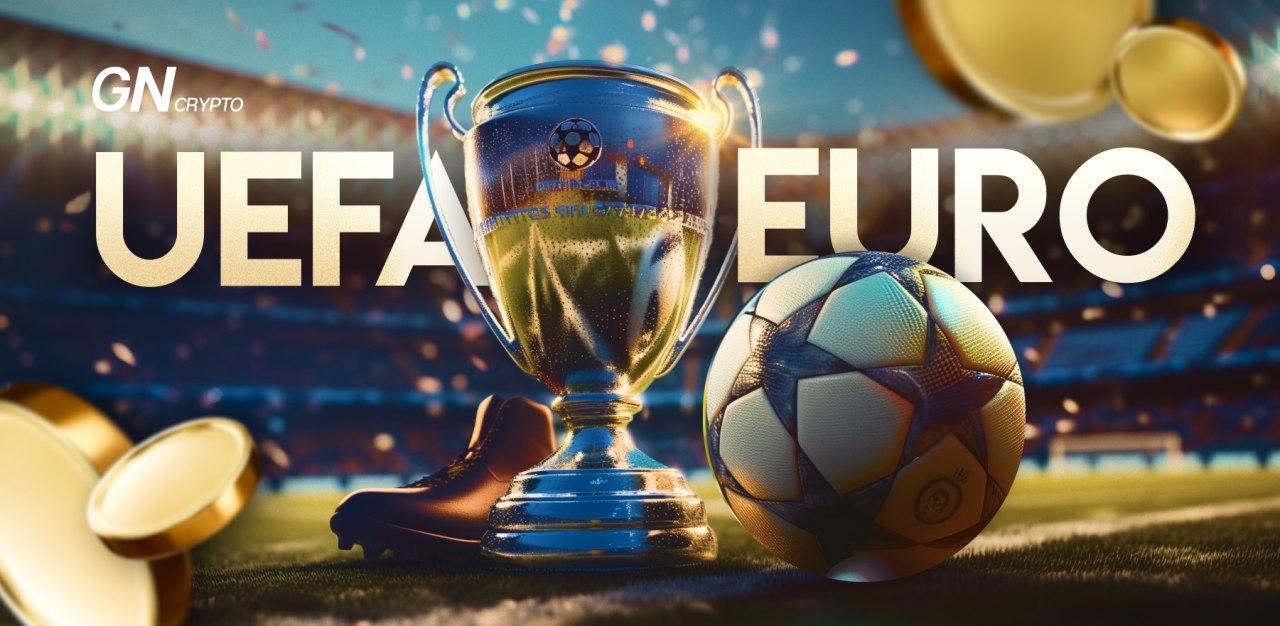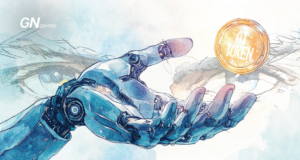UEFA EURO 2024 and Football Fan Tokens

The UEFA EURO 2024 is close to its final, set for July 14. Taking place every 4 years, the event draws the attention of millions. Amid the waves of matches, football fan tokens are a topic of interest as a way of interaction between clubs and their fans. Before the tournament kicked off, most fan tokens increased in price but have fluctuated since.
On this page
What are fan tokens? What do UEFA (Union of European Football Associations) and crypto have in common, and will the final match impact fan token prices? Our article answers those questions.
What Are Football Fan Tokens
Football fan tokens are digital assets based on blockchain technology and licensed by official football clubs. By acquiring a fan token, a person can take part in team polls, community events, and earn different rewards, such as tickets, VIP trips, signed shirts, and collectibles. At the same time, demand and engagement in a certain fan token drive its price up, bringing profit to teams and investors.
People can use their tokens on fan engagement platforms, the largest of which is Socios. Based on the Chiliz blockchain, the platform was founded in 2018, and since then numerous clubs have partnered with it to launch their tokens. The total number of sports teams that have partnered with Socios is over 70, and the majority of them are football clubs.
In 2019, Juventus became the first football club to launch its token, JUV. With time, Barcelona, Milan, Manchester City, Arsenal, Roma, and other teams issued their fan tokens too.
UEFA's Use of Blockchain Tech
The intersection between blockchain and football creates new possibilities for both industries. Being admired by many, football drives more attention to the technology and its use cases. Meanwhile, blockchain enables new types of communication and connection between the sport and its supporters. Beyond fan tokens, it provides other use cases such as digital collectibles and ticketing systems.
UEFA has been exploring blockchain and crypto for a while. Take, for example, the EURO 2020, when the organization distributed more than one million tokenized tickets to fans’ mobile phones. 2020 marked the European championship’s 60th anniversary, and to celebrate this, the UEFA planned to host the tournament in 12 venues. The ticket demand was unprecedented, with over 28.3 million requests from around 200 countries, making EURO 2020 the most in-demand ever. Using a blockchain-based mobile app, UEFA aimed to manage a portion of ticket distribution while ensuring easy and secure entry into stadiums by preventing ticket replication and duplication.
However, managing ticket demand was a minor challenge for UEFA compared to the rising COVID-19 pandemic. Due to the virus, UEFA had to move the tournament to 2021. Ticket holders were able to use their passes on the rescheduled dates. Though the championship took place in 2021, UEFA preferred to keep the name EURO 2020 to honor its original version. The year-long awaited Cup concluded on July 12, 2021, with Italy's victory.
Italian players Jorginho and Leonardo Bonucci celebrating the team’s triumph in EURO 2020. Source: uefa.com
When Fan Tokens Become a Uniting Tool
Since 2019, a growing number of football clubs have launched their fan tokens. A major reason for this was that lots of matches, including the UEFA Nations League and the UEFA Champions League games were played in empty stadiums. In the created situation, fan tokens served as a means for football clubs to keep the engagement with fans and raise money. In 2022, the UEFA signed an agreement with Socios as the Official Gan Token Partner. Based on the official announcement, UEFA offers Fan Token Holders rewards that include the chance to visit the UEFA’s headquarters, a VIP trip to events, and virtual meetups with legendary players. In 2024, fan tokens continue to deliver those benefits.
EURO 2024 Competing Teams and Fan Tokens Performance
The EURO 2024 kicked off on June 14 in Germany. After 36 matches, on June 26, the group stage was over marking the start of knockout phases with 16 teams. Spain was the best performer in the group stage, winning all three games. Next came Austria and Portugal winning two games, and ending one with a draw. The tense knockout stage is underway to decide who plays in the final on July 14. Teams that have already secured their spots in the quarterfinals are:
- Switzerland: 2-0 win against Italy
- Germany: 2-0 win against Denmark
- Spain: 4-1 win against Georgia
- England: 2-1 win against Slovakia
As the tournament progresses, fan tokens linked to national teams and clubs of star players are gaining increased attention. On June 11, before the tournament started, Euronews, Reuters, and other media outlets mentioned the growth in fan token prices, including the Spain National Fan Token, the Portugal National Team Fan Token, and others. This is explained by the excitement and activities caused by the EURO 2024 and the simultaneous event, the Copa America. The increase hasn’t been constant, however, and prices keep fluctuating.
Apart from the ongoing championships, there have been different cases when a major game impacted the fan token’s price. For example, on April 17, when PSG won against Barcelona 4-1 in terms of the Champions League, the PSG Fan Token’s price jumped 25%.
Currently, the market cap of fan tokens is above $320 M. The top tokens by market cap are the Paris Saint-Germain Fan Token (PSG), FC Barcelona Fan Token (BAR), and Manchester City Fan Token (CITY).
Will Football Fan Tokens Rise Before the Final
As generally in the crypto space, the prices of fan tokens depend on various factors, including general market sentiments, investor interest, and news related individually to it.
However, a look at previous events reveals a general pattern. A study by university researchers analyzes how fan tokens behave in major football events, with a focus on the FIFA World Cup 2022.
According to findings, fan tokens tend to rise in the months before the event due to anticipation of the game and possible returns. As the tournament progresses, prices usually decline as the pre-match excitement slows down. Before the final, prices increase again due to excitement and media coverage, and afterward they can be impacted by the game’s outcome. The final match results can lead to sell-offs of the losing team's token, resulting in a decline. At the same time, the research mentions that the price decline of the losing team's token is larger than the increase of the winning team's.
The content on The Coinomist is for informational purposes only and should not be interpreted as financial advice. While we strive to provide accurate and up-to-date information, we do not guarantee the accuracy, completeness, or reliability of any content. Neither we accept liability for any errors or omissions in the information provided or for any financial losses incurred as a result of relying on this information. Actions based on this content are at your own risk. Always do your own research and consult a professional. See our Terms, Privacy Policy, and Disclaimers for more details.


























